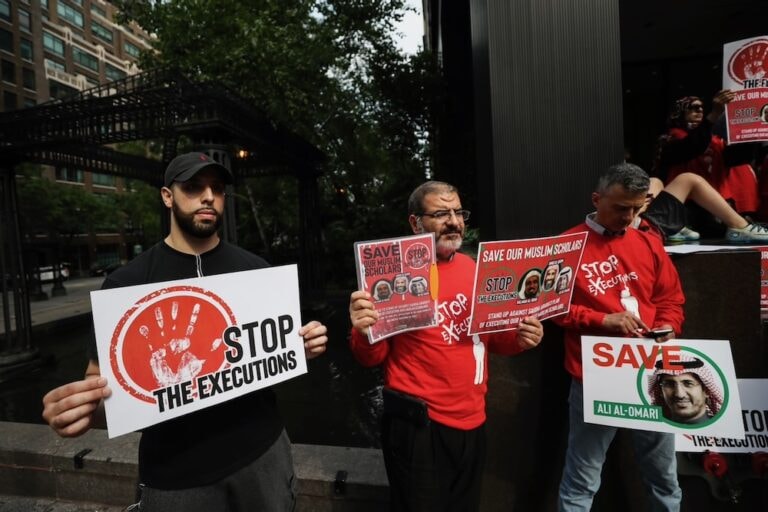Mohamed El Bagadi has been detained since 21 March 2011 and was recently sentenced to four years imprisonment and banned from travelling for five additional years.
(ANHRI/IFEX) – Cairo, 17 April 2012 – ANHRI calls on Saudi authorities to release Mohamed El Bagadi (34 years old), who has been detained in Al Ha’er prison since 21 March 2011 and was recently sentenced to four years imprisonment and banned from travelling for five additional years. El Bagadi went on hunger strike on 21 February 2012 to protest against the ill-treatment in prison.
El Bagadi was convicted of incitement against the regime, supporting the uprising in Bahrain, and distributing prohibited publications. He had joined a sit-in in front of the Interior Ministry demanding the release of arbitrarily detained people in Saudi prisons as well calling for assistance to their families. Following this, Saudi authorities arrested him from his home in the city of Buraida in Qassim on 21 March 2011.
It is worth noting that El Bagadi who is one of the founders of the Arabia political and civil rights organization (Hasm). He has refused to recognize the court’s authority over his case due to its lack of justice and impartiality, demonstrated by its refusal to allow him to bring forward defense witnesses. On 7 April, he also began abstaining from drinking water. He fainted on multiple occasions and his life was in danger while the authorities continued to state that he was in good health and was eating regularly.
“The case of El Bagadi is similar to that of other detainees in the Kingdom who have been suffering years of arbitrary detention without a fair trial. Saudi authorities should drop all charges against El Bagadi and release him immediately without conditions in order to preserve the life of a human rights activist, who faces potential death in a Saudi prison,” said ANHRI.
“The Saudi government should respect the Universal Declaration of Human Rights, which guarantees every citizen the right to hold political opinions and to express these without fear of exposure to bodily or psychological harm by the state,” ANHRI added.


